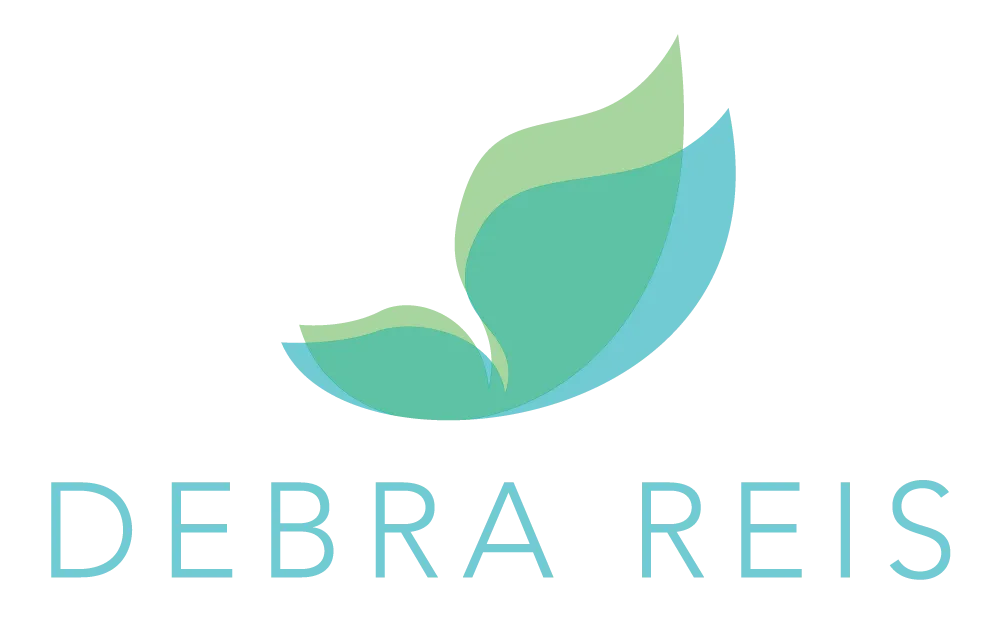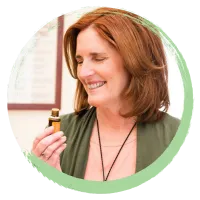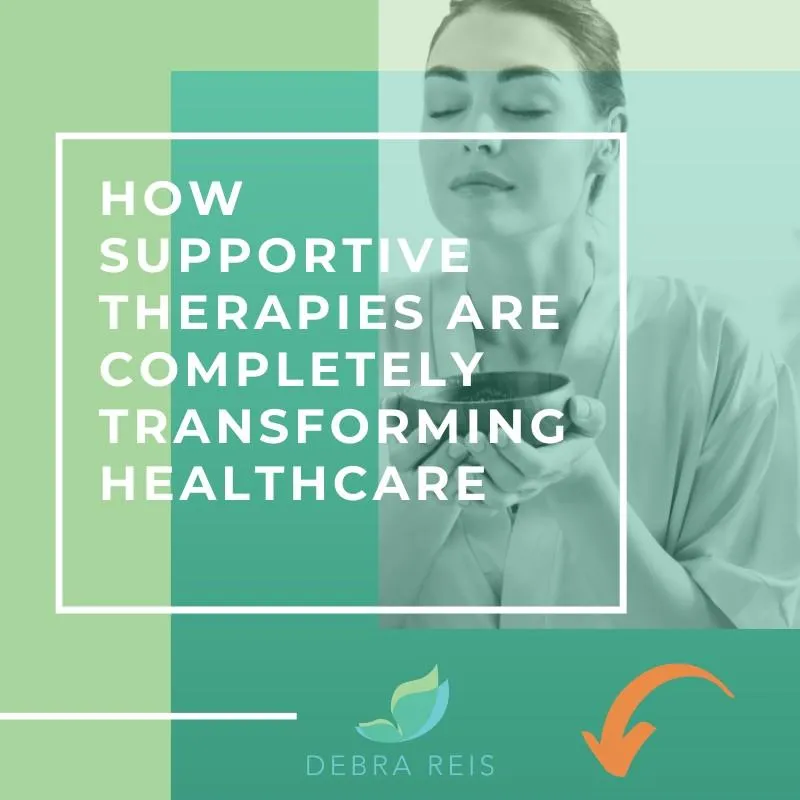BLOG
Supportive Therapies For Better Outcomes — Enrich Your Life Through Relaxation Techniques, Aromatherapy, and Gentle Movement.

Building Resilience: 5 Simple Changes to Create an Anti-Stress Lifestyle
In my decades of experience as a nurse and holistic health practitioner, I’ve witnessed the incredible strength and resilience of healthcare professionals. But I’ve also seen the toll high-stress environments can take—on the mind, body, and spirit. Nurses, in particular, are often asked to keep going long after their emotional and physical reserves have run dry.
It’s easy to think that resilience is simply about pushing through or putting on a brave face, but true resilience goes much deeper. It’s about cultivating an inner strength that allows us to bounce back from challenges, adapt to change, and continue caring for others without burning out.
The good news? Resilience isn’t something you’re born with—it’s a skill that can be developed over time. And many of the most powerful lessons about resilience can be learned from the nursing frontline.
Let’s explore some key insights I’ve gathered over the years about building an anti-stress lifestyle for nurses and anyone navigating a high-pressure, demanding career.

1. Self-Care is Non-Negotiable
It might sound cliché, but I can’t emphasize this enough: You cannot pour from an empty cup. Yet many healthcare professionals, caregivers, and leaders ignore this simple truth. We think if we just push through, get through this shift or that deadline, we’ll eventually find time to rest.
But resilience doesn’t come from enduring more. It comes from knowing when to step back, rest, and refuel. In fact, self-care is a fundamental part of resilience, and we must make it a part of our daily lives.
Here’s something simple I’ve shared with many healthcare teams:
Take five minutes before your shift to focus on your breath.
Breathe deeply, ground yourself, and set a positive intention for the day. These few minutes can help create mental clarity and emotional readiness, buffering you against the stressors of the day.
It’s about small, sustainable practices that fit into your busy life. Self-care doesn’t need to be complicated, but it does need to be consistent.
2. Connection is Key to Thriving
One of the greatest lessons from the nursing frontline is that resilience isn’t a solo journey. Nurses rely on their teams for physical support during a busy shift and emotional and mental support. The importance of community and connection cannot be overstated when you are building an anti-stress life.
In a high-pressure environment, having a support system—coworkers, friends, or family—gives you a place to release tension, share your experiences, and feel understood. These connections anchor during difficult times, reminding you that you don’t have to carry the burden alone.
Resilience thrives in an environment of support and shared experience.
3. Flexibility Equals Strength

In the world of nursing, change is constant. Whether it’s an unexpected emergency, a shift in patient care protocols, or personal challenges at home, nurses know adaptability is critical to survival. But adaptability isn’t just about responding to external changes—it’s about learning to bend without breaking, no matter what life throws your way.
Resilience is, in many ways, about mental flexibility. It’s about pivoting, adjusting your mindset, and reframing challenges in a way that empowers rather than depletes you. When you face adversity, how you interpret and respond to it can be the difference between thriving and burning out.
The ability to adapt and stay flexible in the face of change is a cornerstone of resilience. It doesn’t mean you won’t face difficulties, but it does mean you’ll navigate them with more ease and grace.
4. Find Meaning in Your Work
Resilience is closely tied to finding purpose in what you do. For nurses, the reward of helping others and making a difference in patients' lives often fuels their resilience. But even in the most challenging roles, finding personal meaning and connection to your work can be a powerful motivator.
Take time to reflect on why you do what you do:
What impact are you making on the world around you?
What personal values are you honoring through your work?
5. Recovery is Part of the Process
Resilience doesn’t mean you never get knocked down, and anti-stress doesn’t mean you never experience stress. It does mean you recover after setbacks and don’t allow stress to rule your life. Recovery is an active process—it requires intentional rest, reflection, and recalibration.
In the nursing world, we see recovery in how patients heal. It’s not always linear, and it requires patience. The same is true for building an anti-stress life.. After periods of high stress or difficulty, it’s important to give yourself the time and space to recover physically and emotionally.
Here’s a simple strategy:
At the end of each day, take a moment to reflect on one thing you’re proud of and one thing you’re grateful for. These moments of acknowledgment help you move forward with a positive mindset, even after difficult days.
Incorporating regular recovery practices into your routine allows you to restore your energy and build long-term resilience, thus helping avoid the reactionary cycle of a high-stress life.
The Path to Resilience is Within Reach
Building resilience isn’t about avoiding challenges—it’s about learning how to thrive in the face of them. Whether you’re a nurse, a healthcare leader, or someone juggling the demands of everyday life, these lessons from the nursing frontline can help you cultivate resilience in your own life.
Take time for self-care, lean on your community, stay flexible, connect with your purpose, and remember that recovery is essential to your resilience journey.
What strategies have helped you build resilience?
If you want quick tools to strengthen your resilience, check out my Meditation Bundle. It includes seven 5-minute meditations, one for each day.
Click here to learn more.
This blog is provided for educational and informational purposes only and is not medical, mental health, or healthcare advice. Although Debra Reis is a Clinical Nurse Specialist licensed in the state of Michigan, she is not acting in that capacity here. Debra Reis is acting as a holistic educator and consultant, not as a licensed medical health professional or in her professional capacity as a Clinical Nurse Specialist. The information presented here is not intended to diagnose, treat, heal, cure or prevent any illness, medical condition, or mental or emotional condition. Working with us is not a guarantee of any results. Debra Reis, Wellness Services, LLC owns all copyrights to the materials presented here unless otherwise noted.

Building Resilience: 5 Simple Changes to Create an Anti-Stress Lifestyle
In my decades of experience as a nurse and holistic health practitioner, I’ve witnessed the incredible strength and resilience of healthcare professionals. But I’ve also seen the toll high-stress environments can take—on the mind, body, and spirit. Nurses, in particular, are often asked to keep going long after their emotional and physical reserves have run dry.
It’s easy to think that resilience is simply about pushing through or putting on a brave face, but true resilience goes much deeper. It’s about cultivating an inner strength that allows us to bounce back from challenges, adapt to change, and continue caring for others without burning out.
The good news? Resilience isn’t something you’re born with—it’s a skill that can be developed over time. And many of the most powerful lessons about resilience can be learned from the nursing frontline.
Let’s explore some key insights I’ve gathered over the years about building an anti-stress lifestyle for nurses and anyone navigating a high-pressure, demanding career.

1. Self-Care is Non-Negotiable
It might sound cliché, but I can’t emphasize this enough: You cannot pour from an empty cup. Yet many healthcare professionals, caregivers, and leaders ignore this simple truth. We think if we just push through, get through this shift or that deadline, we’ll eventually find time to rest.
But resilience doesn’t come from enduring more. It comes from knowing when to step back, rest, and refuel. In fact, self-care is a fundamental part of resilience, and we must make it a part of our daily lives.
Here’s something simple I’ve shared with many healthcare teams:
Take five minutes before your shift to focus on your breath.
Breathe deeply, ground yourself, and set a positive intention for the day. These few minutes can help create mental clarity and emotional readiness, buffering you against the stressors of the day.
It’s about small, sustainable practices that fit into your busy life. Self-care doesn’t need to be complicated, but it does need to be consistent.
2. Connection is Key to Thriving
One of the greatest lessons from the nursing frontline is that resilience isn’t a solo journey. Nurses rely on their teams for physical support during a busy shift and emotional and mental support. The importance of community and connection cannot be overstated when you are building an anti-stress life.
In a high-pressure environment, having a support system—coworkers, friends, or family—gives you a place to release tension, share your experiences, and feel understood. These connections anchor during difficult times, reminding you that you don’t have to carry the burden alone.
Resilience thrives in an environment of support and shared experience.
3. Flexibility Equals Strength

In the world of nursing, change is constant. Whether it’s an unexpected emergency, a shift in patient care protocols, or personal challenges at home, nurses know adaptability is critical to survival. But adaptability isn’t just about responding to external changes—it’s about learning to bend without breaking, no matter what life throws your way.
Resilience is, in many ways, about mental flexibility. It’s about pivoting, adjusting your mindset, and reframing challenges in a way that empowers rather than depletes you. When you face adversity, how you interpret and respond to it can be the difference between thriving and burning out.
The ability to adapt and stay flexible in the face of change is a cornerstone of resilience. It doesn’t mean you won’t face difficulties, but it does mean you’ll navigate them with more ease and grace.
4. Find Meaning in Your Work
Resilience is closely tied to finding purpose in what you do. For nurses, the reward of helping others and making a difference in patients' lives often fuels their resilience. But even in the most challenging roles, finding personal meaning and connection to your work can be a powerful motivator.
Take time to reflect on why you do what you do:
What impact are you making on the world around you?
What personal values are you honoring through your work?
5. Recovery is Part of the Process
Resilience doesn’t mean you never get knocked down, and anti-stress doesn’t mean you never experience stress. It does mean you recover after setbacks and don’t allow stress to rule your life. Recovery is an active process—it requires intentional rest, reflection, and recalibration.
In the nursing world, we see recovery in how patients heal. It’s not always linear, and it requires patience. The same is true for building an anti-stress life.. After periods of high stress or difficulty, it’s important to give yourself the time and space to recover physically and emotionally.
Here’s a simple strategy:
At the end of each day, take a moment to reflect on one thing you’re proud of and one thing you’re grateful for. These moments of acknowledgment help you move forward with a positive mindset, even after difficult days.
Incorporating regular recovery practices into your routine allows you to restore your energy and build long-term resilience, thus helping avoid the reactionary cycle of a high-stress life.
The Path to Resilience is Within Reach
Building resilience isn’t about avoiding challenges—it’s about learning how to thrive in the face of them. Whether you’re a nurse, a healthcare leader, or someone juggling the demands of everyday life, these lessons from the nursing frontline can help you cultivate resilience in your own life.
Take time for self-care, lean on your community, stay flexible, connect with your purpose, and remember that recovery is essential to your resilience journey.
What strategies have helped you build resilience?
If you want quick tools to strengthen your resilience, check out my Meditation Bundle. It includes seven 5-minute meditations, one for each day.
Click here to learn more.
This blog is provided for educational and informational purposes only and is not medical, mental health, or healthcare advice. Although Debra Reis is a Clinical Nurse Specialist licensed in the state of Michigan, she is not acting in that capacity here. Debra Reis is acting as a holistic educator and consultant, not as a licensed medical health professional or in her professional capacity as a Clinical Nurse Specialist. The information presented here is not intended to diagnose, treat, heal, cure or prevent any illness, medical condition, or mental or emotional condition. Working with us is not a guarantee of any results. Debra Reis, Wellness Services, LLC owns all copyrights to the materials presented here unless otherwise noted.



